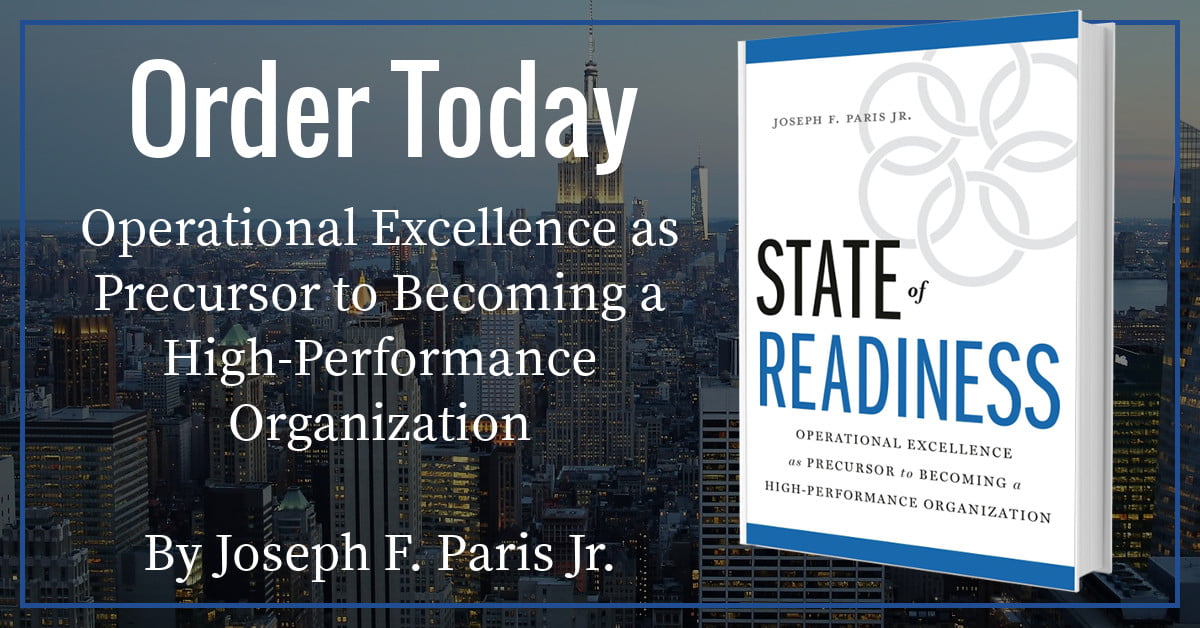Private Equity: A Brave New World
I have been involved with the Mergers and Acquisitions marketplace for several years.
I have seen my fair share of the good, the bad, and the ugly when it comes to the orientations, motivations, and activities of the various Private Equity firms (as well as some Hedge Funds) to whom I have been exposed and with whom I have worked.
I believe that Private Equity firms can provide a valuable, if not invaluable, service to the businesses in which they invest and many have done a lot of good. I also believe that there are many Private Equity firms that have not done a lot of good and, in fact, have caused great harm to the companies in which they invested.
In all fairness, I guess that the same could be said of consulting firms – and other service providers – on all counts and by all degrees.
In my opinion, the rise to prominence and proliferation of Private Equity and Hedge Funds was an “unintended consequence” of the “Sarbanes-Oxley Act” (which was passed in 2002 as a result of the last episode of corporate malfeasance).

Compliance with the law’s many requirements placed an incredible burden on publicly traded companies – so much so that many smaller publicly traded companies could not afford to become (or remain) compliant. However, this did not eliminate the need for capital in smaller companies and institutional and “qualified” investors still wanted a place to invest their funds where the opportunities for greater returns might exist.
This combination – the need for capital and the source of capital for transactions that would be beyond the reach of “Sarbanes-Oxley” regulations, combined with a nearly endless supply of leverage under incredibly easy terms – resulted in a proliferation of Private Equity and Hedge Funds.
Let’s face it – Private Equity firms exist to make money. They want to make money for themselves, of course, first and foremost. They also want to make money for their investors whose funding permits them to exist at all. And to widely varying degrees, they want to make money for the companies in which they invest. All of this is well and good – but it is this last point where I find myself somewhat “unsettled” as compared to other types of service providers.
I am not naïve. I am fully aware that Private Equity firms want to execute an “exit strategy” in five years – at which point they realize the largest potential return. A company who takes an investment from Private Equity must recognize that they have sold their company, that the Private Equity firm will execute their exit strategy at some point in the future, and that this is inevitable.
Several years ago, I was invited to a business symposium in Saratoga, New York, whose host was David Deutsch, President of David N. Deutsch & Company – an investment bank based in New York City.
The topic of the symposium was “Grow or Go”. It was a topic that resonated with me and helped me to “snap into focus” some of the thoughts and feelings that I was experiencing at the time. The rather simple premise of the symposium was that a business must be oriented towards either growing, or setting itself up to be acquired – and if it were not actively pursuing either course, then it risked doom.
I am not a Private Equity firm or Hedge Fund, and I am not an institutional or qualified investor. So I won’t presume to know their inner psyche. However, I am a business owner and have a good sense of what I would require of an investor if I were to allow someone to invest in my company.
And it’s not just the cash…

Mind you, the cash would be a very important component of the transaction. What business owner wouldn’t mind extracting some of the “sweat equity” out of a business that they had built? Realize some of the cash upon closing the deal, perhaps some more upon achieving performance goals and milestones, even more upon the successful execution of the exit strategy.
And unless you are a business owner who wants “out”, for whatever reason (I have always thought about selling “spirit stones” in Sedona, for instance), most business owners want and need finance and investment to grow their business; they need more than what their traditional sources of funding can provide.
But again, it’s not just the cash…
What I would want most is access… Access to (in no particular order):
- Relevance
I would want my investor to have some relevance to the business in which they are investing. For instance, if I owned a company in the aerospace sector, I would want my investor to have experience in working with aerospace companies so that we could converse with an inherent level of understanding.
- Talent
I would want my investor (or investor group members) to have some special talents internally – preferably ones that I didn’t already have – that I could leverage to grow my business.
- Resources
I would want my investor to have resources available (besides talent) that might be of benefit to the company. For instance, perhaps a “sister investment” has a laboratory or engineering group that I can lean upon to facilitate new offering development.
- Networks
As a business owner, I am probably networked to those who are already in my industry. But I would want my investor to have access to supplemental or tangential networks which might be of additional benefit in growing my business.
- Exposure
I would want my investor to be able to increase the exposure of my company to the marketplace. Perhaps the investor has a relationship with a Public Relations firm that can be engaged to get my company’s story out to a wider audience.
- Marketplaces
I would want my investor to help me identify new markets – whether addressing new industries, an expanded geography, additional customers, new verticals, etc…
- Expanded Product (or service) Offerings
I would want my investor to be in a position where they can help expand my product offerings – or in some cases, help me consolidate my offerings if there is internal competition or overlap (take a look at GM or Chrysler, for instance.)

Basically, I would want my investor to be a “strategic” investor and be able to add value beyond the cash. This also means that I would want my investor to be an “active” investor – one who is going to be a partner and whose value is beyond the cash.
In the world of today, a Private Equity firm has to be prepared for a buy-and-hold strategy – even if that is not what the original plan was.
Too many Private Equity firms still believe they can achieve their return on investment simply by crafting fancy financing (customers don’t buy “financing”), by cutting investment in delivery capability (you can’t cut your way to growth), or by increasing sales forecasts (there are two types of forecasts, wrong ones and lucky ones), or by other means of hypothesis generation such as reading tea-leaves.
And the days of flipping an investment using ever-increasing and creative forms of leverage are over. Today, the most reliable avenue for selling a business and executing an “exit strategy” is to be purchased outright by an SEC (publicly traded) company from somewhere in the world.
So what’s an investor to do? It’s simple, make a go of it…
Grow the business by focusing on the customer – both the retention of existing customers and the acquisition of new customers. Make or provide what the customer wants when they want it. Be certain to listen to your customer, they will tell you how to satisfy them and to keep them satisfied.
Identify new markets – perhaps create new “Blue Ocean” markets.
Boost the company’s cash-flow from operations by “leaning-out” the business – eradicate waste, reduce inventory and work-in-process, shrink your lead-times, eliminate redundancies, and increase quality.
Take your returns in the form of dividends – a gift that can keep on giving year-on-year. And execute an “exit strategy” when the timing is right – not based on artificial timelines for holding.
Sure, it’s harder work – but so what.
By Joseph F Paris Jr
Paris is the Founder and Chairman of the XONITEK Group of Companies; an international management consultancy firm specializing in all disciplines related to Operational Excellence, the continuous and deliberate improvement of company performance AND the circumstances of those who work there – to pursue “Operational Excellence by Design” and not by coincidence.
He is also the Founder of the Operational Excellence Society, with hundreds of members and several Chapters located around the world, as well as the Owner of the Operational Excellence Group on Linked-In, with over 25,000 members.
For more information on Paris, please check his Linked-In Profile at: http://de.linkedin.com/in/josephparis






